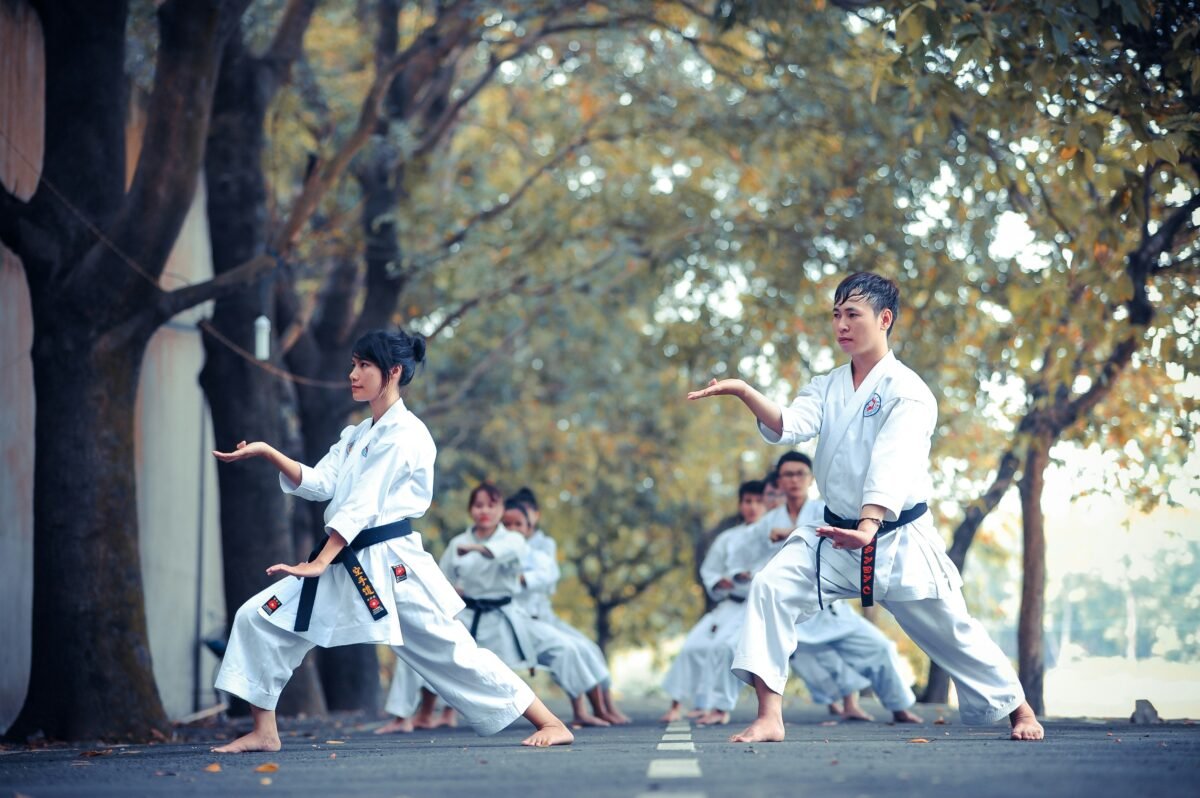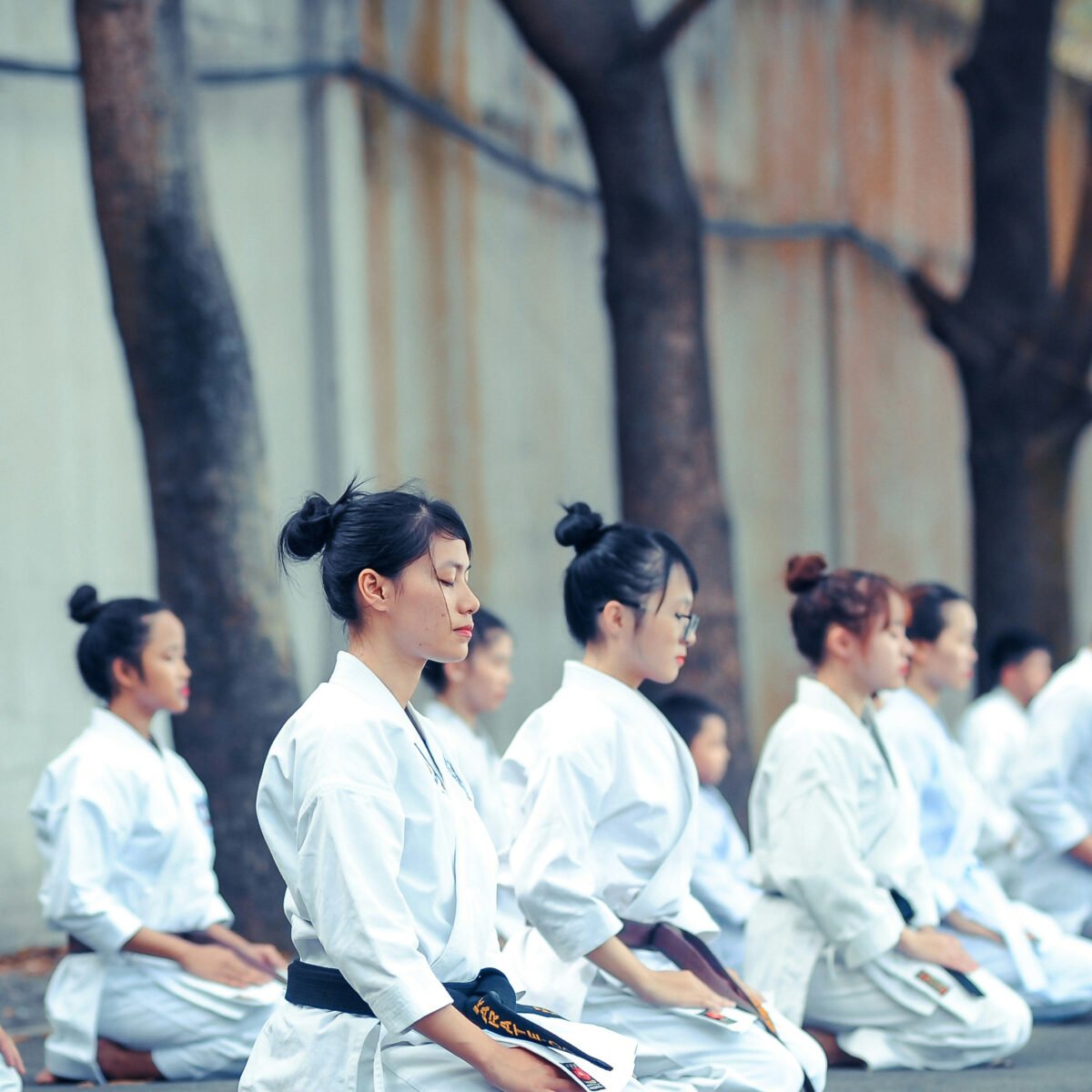Outdoor practice of martial arts offers numerous benefits that enhance both the physical and mental aspects of training. Here’s why practicing martial arts outdoors can be particularly advantageous:
1. Connection with Nature
- Mental Clarity: Practicing martial arts in natural settings, such as parks or forests, helps practitioners connect with nature, which can be calming and invigorating. The natural environment often brings a sense of peace and mental clarity, which can improve focus during training.
- Breathing Fresh Air: Training outdoors allows practitioners to breathe fresh air, which can enhance lung capacity and overall health. The clean air can also improve mental alertness and reduce feelings of fatigue.
2. Enhanced Physical Conditioning
- Varied Terrain: Practicing on uneven ground, such as grass, sand, or rocky surfaces, challenges balance and coordination more than the smooth floors typically found in indoor studios. This can improve a martial artist’s agility and adaptability.
- Natural Resistance: Elements like wind or incline in outdoor environments create natural resistance, which can make certain exercises more challenging and effective. For example, running uphill or practicing forms against the wind can enhance strength and endurance.
3. Improved Mental Toughness
- Dealing with Distractions: Outdoor environments are less controlled than indoor studios, requiring practitioners to focus and adapt despite potential distractions like weather changes, noises, or other people. This can build mental toughness and the ability to maintain focus under pressure.
- Exposure to Elements: Training in varying weather conditions, such as rain or cold, can toughen the body and mind, making practitioners more resilient and better prepared for unexpected challenges.
4. Spiritual Growth
- Harmony with the Environment: Many martial arts, especially traditional ones like Kung Fu, emphasize harmony with nature. Practicing outdoors can deepen this connection and help practitioners understand and embody these philosophical principles.
- Meditative Quality: The tranquility of natural settings can enhance the meditative aspects of martial arts practice. The rhythmic sound of wind, rustling leaves, or flowing water can create a serene backdrop for meditation and introspection.
5. Social Interaction and Community Building
- Public Demonstrations: Outdoor practice can attract onlookers and foster a sense of community. It can also serve as a form of public demonstration, showcasing the art to a broader audience and potentially inspiring others to join.
- Group Dynamics: Training outdoors in groups can create a sense of camaraderie among practitioners. Sharing the experience of outdoor practice can strengthen bonds within a martial arts community.
6. Variety and Creativity in Training
- Use of Natural Props: Outdoor settings provide a variety of natural elements, such as trees, rocks, and hills, that can be incorporated into training. These can be used for conditioning exercises, target practice, or to simulate real-world self-defense scenarios.
- Freedom of Space: The open space available outdoors allows for more dynamic and expansive movements, such as long-distance running or larger group drills, which might be limited in an indoor setting.
7. Health Benefits
- Vitamin D Exposure: Training outdoors exposes the body to sunlight, which is a natural source of vitamin D. This is crucial for bone health and immune function.
- Stress Reduction: The combination of physical activity and the calming effect of nature can significantly reduce stress levels, promoting overall well-being.
Conclusion
Outdoor practice of martial arts provides a holistic training experience that goes beyond the physical benefits. It enhances mental focus, spiritual growth, and resilience, while also fostering a deeper connection with the environment. Whether it’s the fresh air, varied terrain, or the meditative quality of nature, outdoor training offers unique advantages that can elevate a martial artist’s practice to new heights.


